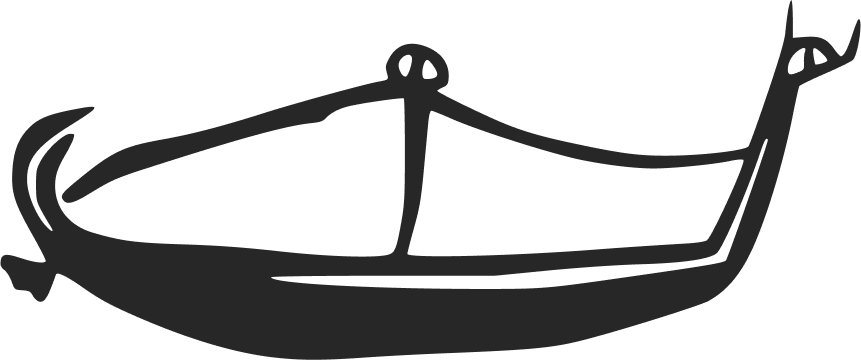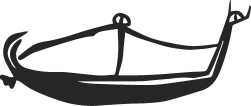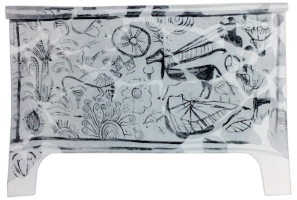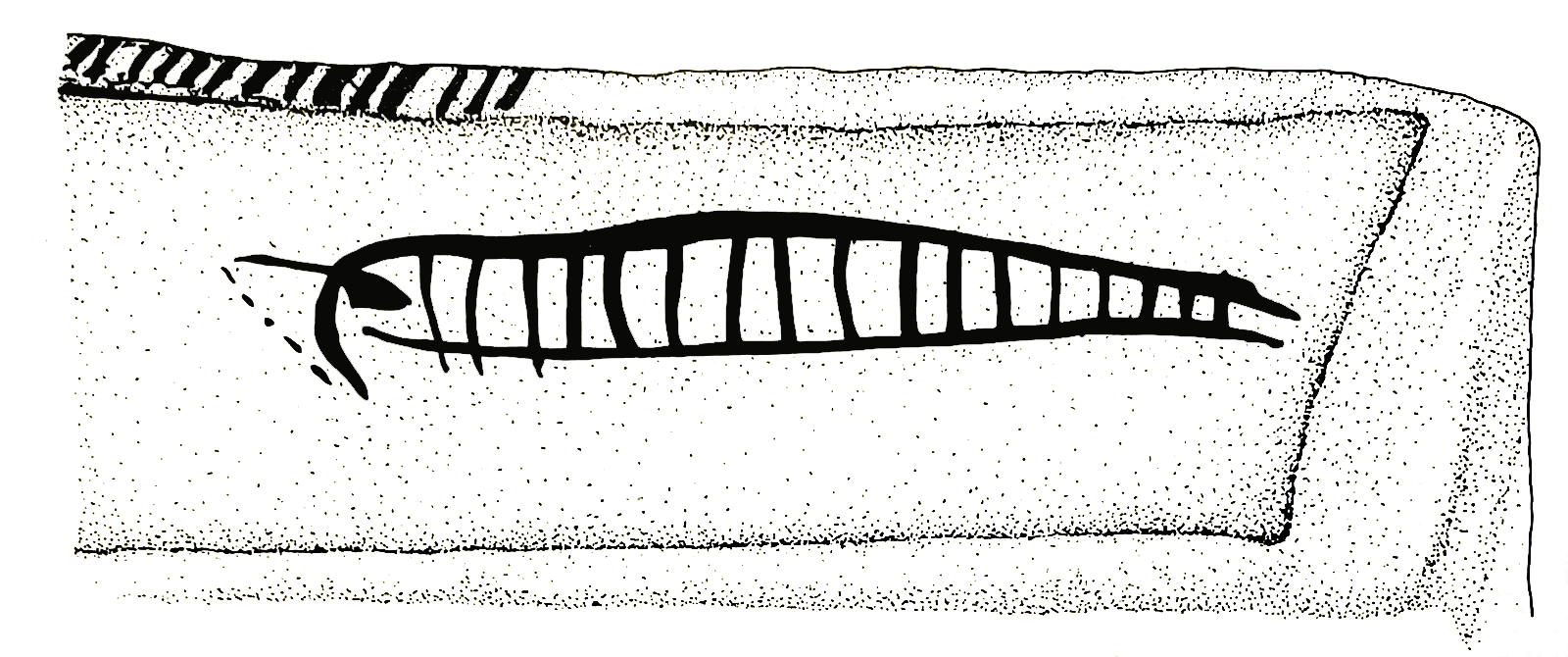The ship was painted upside down on the inside wall of the larnax. Flat hull with a curving sternpost indicate by a steering oar. Keel line rises slightly towards the bow. The keel and gunwale lines do not join. The two horizontals are joined by seventeen vertical parallel lines. There is an oblique dotted line from the top of the curved stempost to the outward extremity of the line representing the steering oar. The ship is possibly off the Minoan type (Wedde Type IV).
Minoan ship
A83
LM IIIB (?)
Unknown
Not available
Painted clay larnax
n/a
Gray 1974: G47, fig. 11; Humphreys 1977: 352; Wachsmann 1998: 131, fig. 7.7; Wedde 2000: 320, no. 607
Was on the Swiss art market in 1970/1971
Humphreys has wondered whether the upside down orientation was on purpose: " Can it possibly have been painted this way to make it look right from the point of view of the corps." (Humphreys 1977: 352)
Gray, D. 1974, Seewesen. Göttingen: Vandenhoeck und Ruprecht.
Humphreys, S. C. 1977. “Review of Seewesen,” Classical Philology 72: 347-355.
Wachsmann, S. 1998. Seagoing Ships & Seamanship in the Bronze Age Levant. College Station, TX: Texas A&M University Press.
Wedde, M. 2000. Towards a Hermeneutics of Aegean Bronze Age Ship Imagery. Peleus Studien zur Archäologie und Geschichte Griechenlands und Zyperns, vol. 6. Bibliopolis: Mannheim and Möhnsee.






